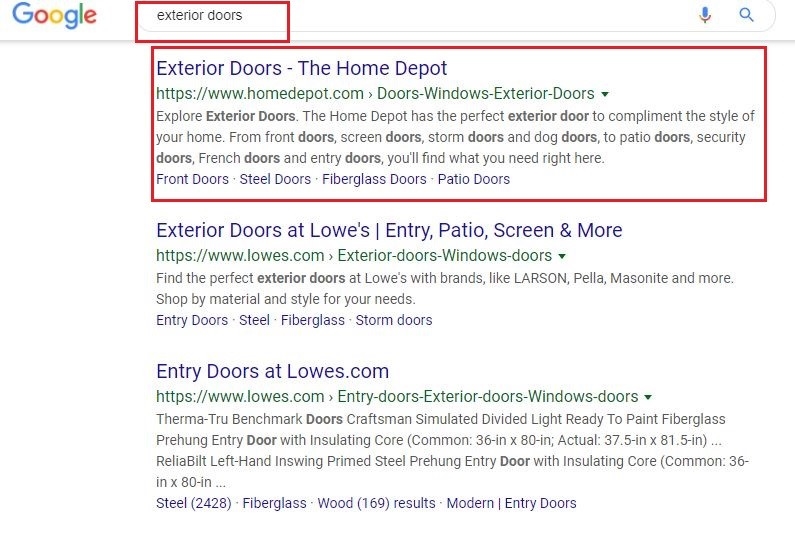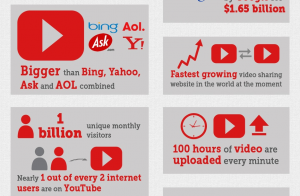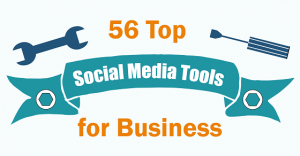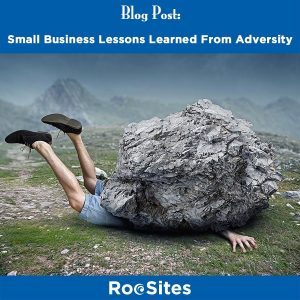
Whether you are a part of an in-house marketing team or an agency, something is usually consistent in both as far as teams go. Now, I want you to do me a favor. Stand up and look around if you are either in an SEO or PPC department. Are your teams sitting together or separated? Chances are, it’s the latter of the two as this is common practice among digital marketing departments or agencies. This doesn’t mean you should be strategically separated, however. A well-blended SEO and PPC strategy can be vastly superior than running both separately without cross-team collaboration. So let’s dive in and see how we can achieve success for great results.
Capturing Clicks No Matter What Medium
Here’s an eye-opening statistic for you: approximately 90% of searchers don’t go past the first page of Google search results. 90%! So after reading this fact, it becomes apparent that getting searchers to click on your ad or blue organic link is important if you are already ranking on page 1. But capturing that searcher or position in the first place can be difficult. You could be ranking #11 for a search term in organic, but if searchers don’t scroll to the second page, you’ll be missing an opportunity to attract their business. This is why adding a PPC strategy on top of this is beneficial to split the difference in which you can easily rank #1 with a paid ad and spend the appropriate amount to stay at the top instead of waiting for organic to catch up, and there’s no guarantee it will. Practicing both mediums increases your chances of being seen!
Example: Home Depot has the top paid ad as well as the top organic position for the search term “exterior doors.”


Use a Holistic Approach
I’m talking about high level stuff here, friend! Think about all the classic combos of history. PB&J. A burger and fries. Bacon and eggs. SEO and PPC? I’m a firm believer in both of them serving their purpose on their own, but together, that’s really where the magic happens. A holistic approach creates a strong search engine presence – here’s how:
- PPC drives traffic: Paid ads create exposure on page 1 to your website in an otherwise buried search result. It could organically be on page 3, 4, or even farther back.
- PPC Fills In When Organic Drops: Let’s say an organic keyword drops out of nowhere. The PPC ad can pick up the pieces without missing a beat while the SEO team figures out what happened and remedies the issue.
- Use SEO to Optimize PPC Landing Pages: Whether it’s a tailor made landing page for specific ads or a category page, using SEO practices to optimize the page will help it rank higher in both mediums.
- SEO and PPC Dominance: Using these types of holistic practices and assert your SERP dominance, and send better ranking signals across the web.
Use PPC Data from Keyword Planner for SEO Keyword Research
There are many ways to perform keyword research and a variety of tools to use in order to gather the data you need. One thing that I like to do when carrying out keyword research for our clients is to use Google Keyword Planner data. This probably isn’t new to you, as you probably do this yourself, but hear me out.
- Monthly Searches: Yes, search volume still matters. The term, or some variation of it, has to be entered into Google in the first place at a volume that makes sense. You can also see search volume is trending with a visual graph. It also depends on how specific the search query is in your industry, which ties into….
- Competition Metrics: Google Ads has a column in keyword planner called “Competition”, and is ranked High, Medium, or Low. This is particularly useful for PPC data, but you can actually check this out for SEO to see how competitive your area of business is in general so this can drive overall strategy. If you are a smaller business, aim for medium and low competition keywords.
Use SEO Data for PPC Campaigns
Maybe you are having success with organic keywords in certain keyword areas that are essential to your business. You are getting the traffic, but you aren’t getting the conversions! What can be done?
- Use Remarketing: Get these customers back with remarketing display campaigns to show previous site visitors what they were missing out on. You essentially purchase ad space in Google’s Display Network so that your ad will display to customers on sites they normally frequent.
- Remove High Ranking SEO Keywords: If you already have high ranking keywords for pages that rank in positions 1-3 on Google, then chances are you can remove them from your PPC campaigns and put that money you would spend on clicks somewhere else. Common sense, right?
Reap the Benefits of the Blend
After implementing the blend, you can start reaping the benefits! Here are just some that you’ll be seeing:
- More Traffic & Visibility: This might be the obvious answer. When you have all your bases covered in both SEO & PPC, you’ll have more exposure on the SERPs which means more visibility, more traffic, and more clicks.
- Higher PPC Quality Scores for Keywords & Ads: When Google and Microsoft Ads go through and scan your ads, they scan whatever landing page they are linked to and if relevant keywords are included. This can include the title, page headers, and page description. The SERPs will then give you a reward in terms of a boost in quality score if the keywords you are targeting are relevant to the landing page content. This quality score boost will also lower cost per click, and leads me to my next point.
- Better PPC = Better SEO: As mentioned earlier, when you optimize a PPC landing page for SEO, it goes without saying it will give you a boost in BOTH paid and organic search results. It will also increase the aforementioned quality scores, as well as giving keywords an organic rankings boost for the landing page you have a higher quality score on.
- Higher Returning Visitors & ROI: Think about this for a second. Let’s say someone searches for your services or product online and happens to click on an organic link while they are in the awareness phase of the sales funnel. When they come back during the action (purchasing) phase, they are most likely going to search for your brand since they now know about it. Or one could use remarketing to target customers that aren’t converting. Either way, utilizing both mediums working hand in hand = higher ROI & conversions.
Digital & Social Articles on Business 2 Community
(32)
Report Post







